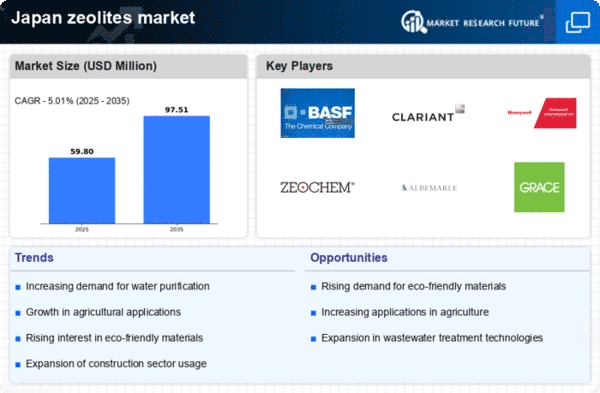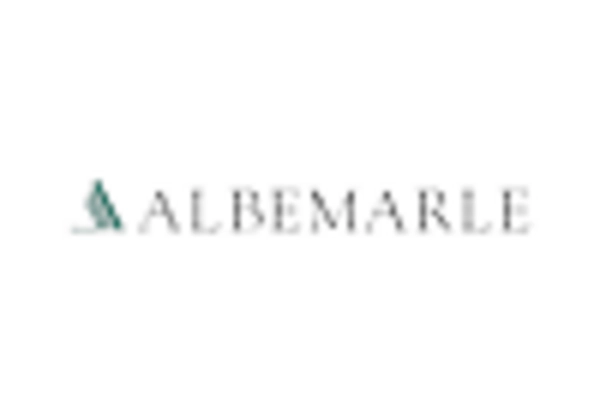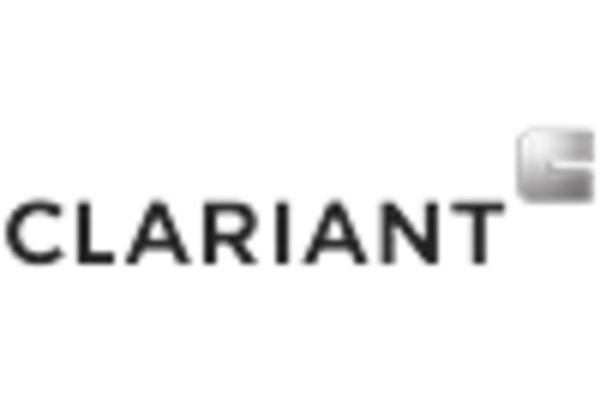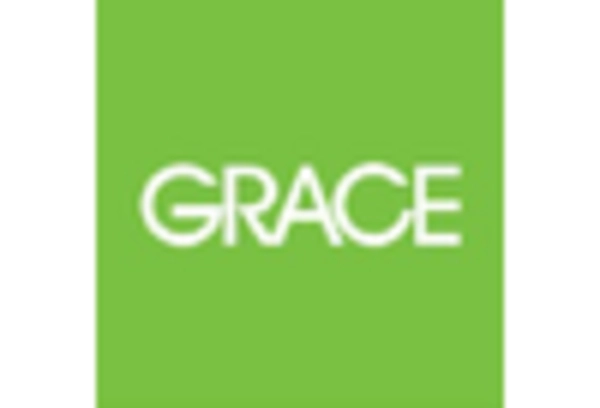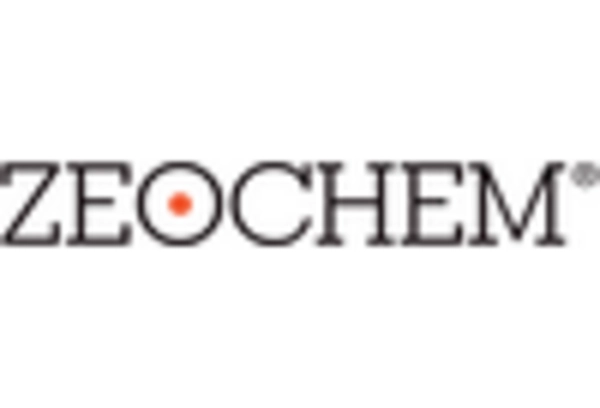Japan Zeolites Market Summary
As per Market Research Future analysis, the Japan zeolites market Size was estimated at 56.95 $ Million in 2024. The Japan zeolites market is projected to grow from 59.8 $ Million in 2025 to 97.51 $ Million by 2035, exhibiting a compound annual growth rate (CAGR) of 5.0% during the forecast period 2025 - 2035
Key Market Trends & Highlights
The Japan zeolites market is experiencing a shift towards sustainability and technological innovation.
- Sustainable agriculture practices are increasingly influencing the demand for zeolites in Japan.
- Technological advancements in processing are enhancing the efficiency of zeolite applications across various sectors.
- Water treatment applications are gaining traction, reflecting a growing awareness of environmental concerns.
- The rising demand for eco-friendly products and increased focus on water purification are key drivers propelling market growth.
Market Size & Forecast
| 2024 Market Size | 56.95 (USD Million) |
| 2035 Market Size | 97.51 (USD Million) |
| CAGR (2025 - 2035) | 5.01% |
Major Players
BASF SE (DE), Clariant AG (CH), Honeywell International Inc. (US), Zeochem AG (CH), Albemarle Corporation (US), W.R. Grace & Co. (US), Tosoh Corporation (JP), KNT Group (RU), UOP LLC (US)


